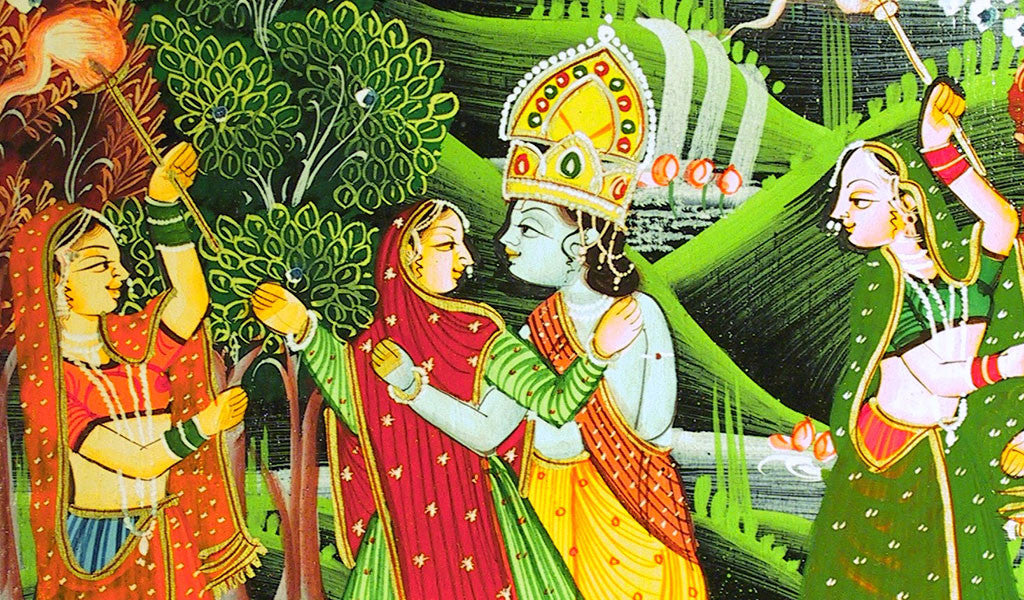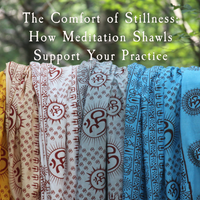 Ah love. It’s glorious, isn’t it? It must be. After all, we sing about it, long for it, express it and hope we are loved back. This little word – love – it seems, is a really big thing. But what is love, really? “
Ah love. It’s glorious, isn’t it? It must be. After all, we sing about it, long for it, express it and hope we are loved back. This little word – love – it seems, is a really big thing. But what is love, really? “
The highest expression of love is like rain, falling and splashing on anything exposed to its freshness, without making any kind of distinction. Love cascades from the hearts of beings who are full and complete, and who recognize themselves as love. The more we love, the more conscious we become. The more intense our love, the clearer our vision.” ~Prabhuji, H. H. Bhaktivedanta Yogacharya Ramakrishnananda Swami Maharaja
We know that to love is to give, give and give some more—to love for the sake of love itself—but does what we call love sometimes get tangled up with the desire to receive it from others instead?
Have you ever said you’re looking for love but, if you take a step back now and analyze it with the 20/20 vision of hindsight, see that the feeling was closer to a craving to be loved? Everyone’s heard that in order to love others, we must first love ourselves, but wait a minute. What if all we find is a scary inner void that we didn’t even know was there in the first place? Best to hightail it out of there and look to others for love!
Actually, cancel that dramatic turn and keep looking inside yourself for the moment. The truth is, each and every one of us has heavenly bliss just waiting to be tapped into in our loving depths, but this is rarely perceived. Instead we think we need others. Here enters a life of worldly attachments.
Ever fallen in love or, um, in attachment?
“Attachment is the expression of love through a limited and undeveloped instrument. Although attachment and love have the same essence, the former takes place on a level where we only seek our own benefit. Attachment is actually an attempt to exploit others for the sake of one’s own enjoyment.” ~Prabhuji
Talk about calling a spade a spade. Take a deep breath and hang on. There is (divine) light at the end of the tunnel.
“Love is bliss and beauty, but through the ego, it can only be partially expressed. Consequently, love not only loses its glow but also causes suffering.” ~Prabhuji
To put it plainly, an attachment to another may actually cause someone to yearn to possess another. In the end, we all suffer, and nobody wants that, right? It’s actually the opposite of what any of us want, especially when we’re seeking love, something that’s too beautiful for words and is all about giving and has nothing to do with possessing. “All attachments are psychological illusions that block our sensitivity to others. This leads us to relate to people depending on the threat they pose or the help they offer in fulfilling our own ambitions. However, love is possible only if we transcend all types of attachment.” ~Prabhuji So let’s move toward the direction of love instead, something that is best practiced by allowing it to expand beyond our beloved, our family, our community and even our country. Each of us has the capacity to love all beings, excluding no one – universal love. “It is so difficult to objectively state what love is because the definition of love is influenced by our perceptions. Just as a light bulb’s brightness varies according to our distance from it, the experience of love’s intensity depends on our position on the evolutionary ladder, and how we identify with our different attributes.” ~Prabhuji Wait a moment. Isn’t love just to, um, love? Let’s break it down to the different intensities that Prabhuji mentioned.
The levels of love
 1. Physical love: We all know what this is. For someone who strongly identifies with the body, it makes sense that love is defined as a form of enjoyment, of pleasure at the level of the senses from physical contact. As Nicolas Sebastian Roch de Chamfort (1740-1794) once said, “Love, as it exists in society, is not love, but the exchange of two fantasies and skin contact.” Let’s call it a physiological phenomenon. In Sanskrit, the ancient language of Hinduism, this is known as kama, meaning lust or desire.
1. Physical love: We all know what this is. For someone who strongly identifies with the body, it makes sense that love is defined as a form of enjoyment, of pleasure at the level of the senses from physical contact. As Nicolas Sebastian Roch de Chamfort (1740-1794) once said, “Love, as it exists in society, is not love, but the exchange of two fantasies and skin contact.” Let’s call it a physiological phenomenon. In Sanskrit, the ancient language of Hinduism, this is known as kama, meaning lust or desire.
2. Emotional love: There are others who identify strongly with their emotions and define love by what they feel in their heart. The problem with this, however, is that it is subject to change, and change it will. Ever heard the expression, “There’s a fine line between love and hate?” This saying comes from this level of love. Let us give you an example. Someone falls madly in love but then things happen to cause a change of feelings. Suddenly, the once beloved is now unbearable, or someone who was initially repelling at some point becomes the object of our desire. In other words, there is an attraction and we call this falling in love. It may, however, be more accurate to describe this as becoming attached or maybe even temporarily attached. If someone can shift from being our beloved to our enemy, it must mean that attachment is nothing more than another aspect of hatred, making attachment and hatred two sides of the same coin.
3. Intellectual love: Now to the romantics among us. Many of us are particularly identified with our thoughts and we spend a lot of time hovering around in our imaginations. In this case, love may be experienced more as an intellectual phenomenon and leads to romantic songs and poetry, and the hope for prince charming. This love has a theoretical and calculating aspect, and often involves receiving something in exchange for what is given.
4. Devotional love: Now we are really getting somewhere. As it says in the Hindu scripture called Śāṇḍilya-bhakti-sūtras, 1.2: “Supreme attachment to God is called bhakti.” Most of us live in the objective realm, where attachment takes place rather than true, unconditional love. So this level of love requires symbols of the transcendental, such as hymns, scriptures, places of worship and deities, to help develop devotional attachment. These help turn worldly attachment, which brings fear and suffering, into devotion and attachment to God, which bestows a peace of mind and happiness. 5. Transcendental love: By this time, any earthly pleasure appears dull and transcendental love is realized as a communion. It’s hard for most of us to imagine a disinterest in earthly pleasure, so just imagine how divine transcendental love must be! This love is not for someone but for life itself and the elevated souls among us tell us that this is where ecstasy blossoms. Love is no emotion. It is the need to return home to God.
Bhakti Yoga, the Yoga of Love
Now things are really getting interesting. Although the word “yoga” has come to mean a relatively peaceful kind of stretching and exercise session, there are actually many different kinds of yoga that spiritual seekers practice, depending on their guru’s instructions and their natural inclinations. Yoga actually means “union,” and there is raja yoga, yoga of the mind; jnana yoga, yoga of knowledge; guru yoga, yoga of the spiritual master; karma yoga, yoga of action; and so forth. There is also bhakti yoga, which is the path of devotion, also known as the yoga of love.
 “Bhakti yoga is the yogic path of love that aspires to an inner alchemy of emotions; it does not suggest suppressing earthly feelings or nullifying them mechanically, but transcending them by developing the discernment between attachment and love.” ~Prabhuji
“Bhakti yoga is the yogic path of love that aspires to an inner alchemy of emotions; it does not suggest suppressing earthly feelings or nullifying them mechanically, but transcending them by developing the discernment between attachment and love.” ~Prabhuji
Love is our nature and it is the very essence of who we are. Just as our body needs oxygen, our soul needs love. But as long as we direct our love to the mundane, our efforts will be futile. Through bhakti yoga, we stop attaching ourselves to certain people because of what we want to get from them, and we are able to see a divine presence in every being and truly love them. We love for the sake of love itself rather than a need for something we hope they can give us.
“If someone only eats onions for twenty years and then is offered a delicacy, the onions will be abandoned without hesitation; all previous appeal will vanish as if it had never existed. Likewise, when we are exposed to a new source of superior pleasure, all other attractions effortlessly wither away. Only then do we naturally lose interest in worldly enjoyment and perceive ecstasy.” ~Prabhuji
For the bhakta, this devotional spiritual practice is like a philosopher’s stone. It “divinizes the earthly, spiritualizes the material, and transforms our worldly attachments into true love,” as Prabhuji once wrote.
Bhakti yoga leads us to expand our own identification as well as our capacity to love as we become increasingly aware of the more subtle levels of existence and transcend the concept of “I” and “mine.” We evolve from mundane awareness to divine consciousness. “When discovering love as our own essence, it expresses itself like a perfume emanating from our very presence.” ~Prabhuji








0 comments